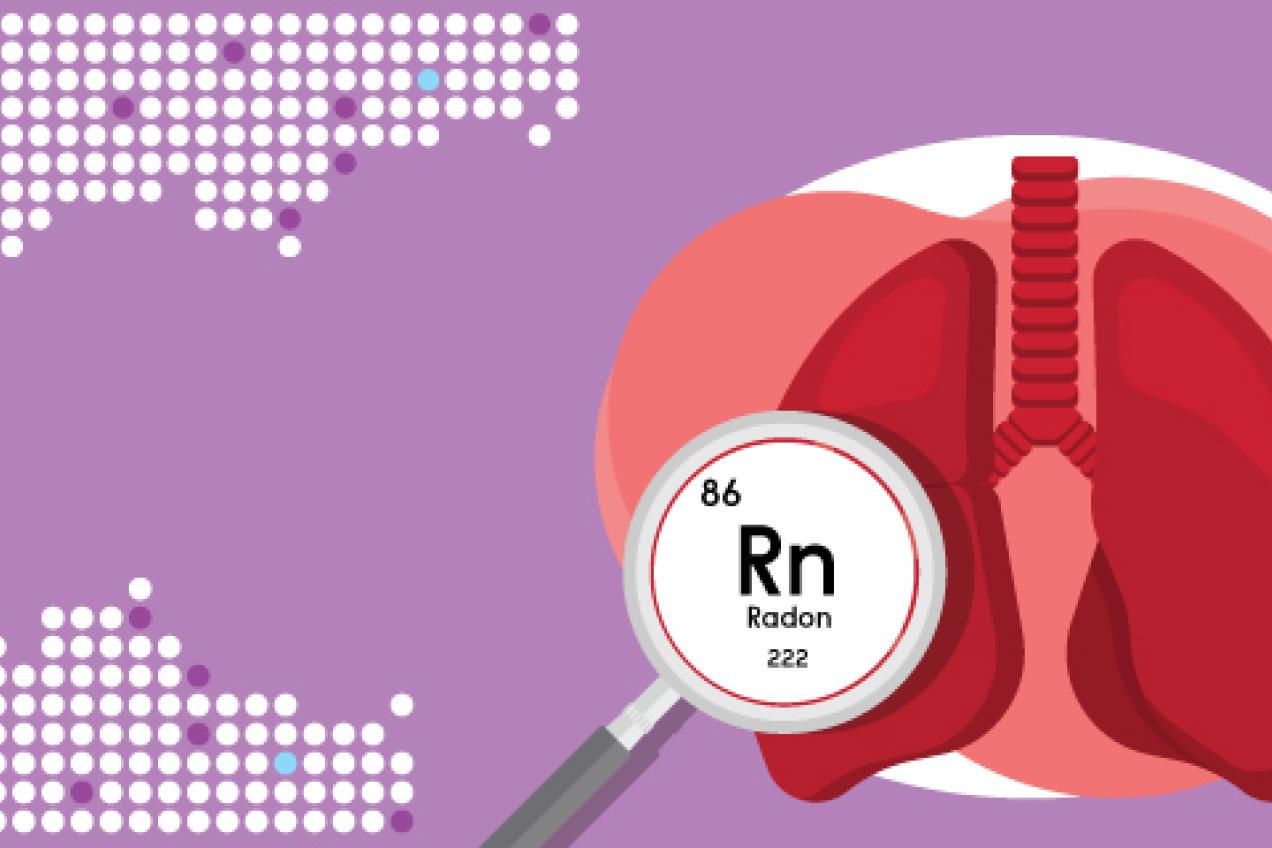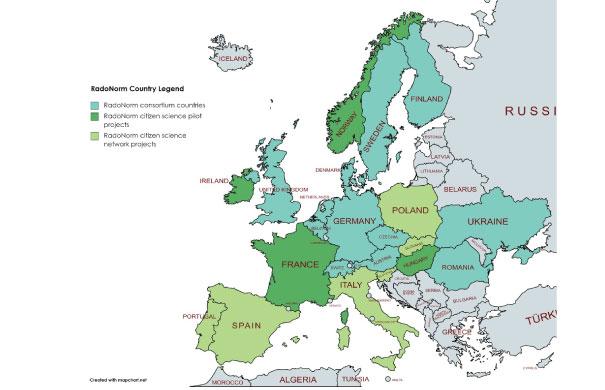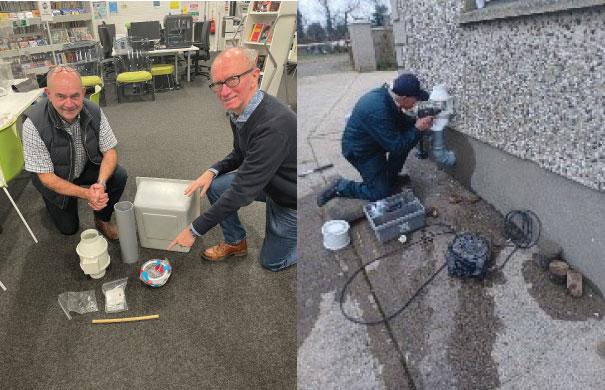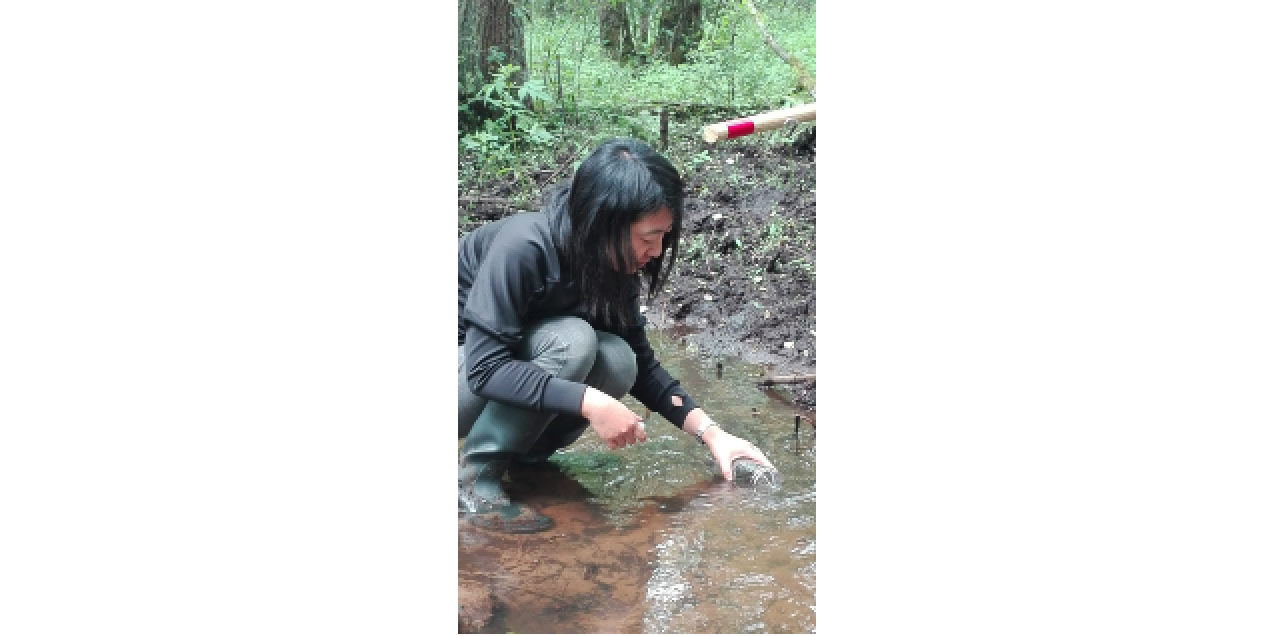SCK CEN is now part of 'Citizen Science Incubator'
Social scientists launch 6 citizen initiatives against
Radon problems in Europe via RadoNorm
Citizen science: we all witnessed clever projects with the Flemish 'CurieuzeNeuzen' or 'ObsIdentify'. Did you know that you can also add 'RadoNorm' to that list? The consortium including our own social scientists previously launched 4 successful citizen science pilot projects and is now taking it a step further. "RadoNorm will take on the role of 'citizen science incubator' where we are rolling out as many as 6 European Radon protection initiatives. Some of them will start as early as September 2023," said SCK CEN experts Tanja Perko and Mabel Akosua Hoedoafia.

Citizen science: the holy grail in Radon problems?
Citizen science is scientific research conducted by non-professional scientists. Often citizen scientists work with professional researchers. Citizens participate in research, feel involved, talk about it, actively contribute to the topic... which means citizen science not only generates new knowledge, but it can also boost science education and policy making.
"That is music to our ears when it comes to our desire to raise awareness about the Radon issue. Radon is the 2nd biggest cause of lung cancer in Europe. Therefore, it should not be a distant issue. Unfortunately, we find that people know about the Radon risks, but simply do not take action. Whether citizen science can solve that, we are continuing to find out," said Mabel Akosua Hoedoafia, citizen science expert at SCK CEN.
What is radon and how does it pose a health problem?
While smoking is still the leading cause of lung cancer, there is another silent threat that often goes unnoticed: Radon. In Europe, it is recognised as the second biggest cause of lung cancer. Radon is a colourless, odourless and tasteless gas that occurs naturally in the environment. It can enter homes and buildings, where it can accumulate to dangerous levels.Want to know more about Radon and its potential dangers? IAEA, the International Atomic Energy Agency, compiles a lot of information online. Click through to iaea.org for more information and tips to avoid Radon.
Science incubator RadoNorm: 6 citizen initiatives at once
For the next two years, SCK CEN will co-facilitate RadoNorm's citizen science incubator. Tanja Perko, risk communication expert at SCK CEN, clarifies: "Concretely, this means that SCK CEN will co-facilitate several citizen science projects in Europe related to Radon. With RadoNorm, we launched a call for such initiatives in November 2022 and received 19 proposals. 6 projects spread across Europe were given the go-ahead. SCK CEN will support them via the incubator role as a sparring partner, helping to obtain funding, by supplying models or helping them to develop materials... All the trimmings."

6 initiatives in a nutshell
The incubator is committing to 6 projects in Italy, Poland, Portugal, Slovakia, Slovenia and Spain. Each initiative allows citizens to take radon measurements, mainly in schools, homes, offices or underground mines and in some cases even tailor-made mitigation solutions. A specific case also investigates radon concentrations in tap and drinking water from spas.
For example, one of the 6 projects is Poland's citizen science project which will start in September and will be part of the educational curriculum. Mabel Akosua Hoedoafia emphasizes the value of the project: "It is ingrained in the lesson plans so youngsters will work on it intensively for a long time. They will not only be testing and analyzing, but will also look at how to reduce radon concentrations effectively. That immense involvement of young people and citizens, an interactive story from A to Z... This goes beyond traditional scientific boundaries. We are already looking forward to the results in May 2024."

Prediction: what does it do for citizens and politics?
Does citizen science make citizens more decisive? Is it a lever to get politics moving too? We will get answers by the end of 2024 when RadoNorm concludes its 'incubatorship'. The prognosis is hopeful. "During our pilot project in Ireland, we endowed DIY kits to citizens to mitigate Radon in their homes. In 9 cases the safety limit was exceeded, in 6 of them action to better protect homes were taken.
It gets better! Another citizen project among pregnant women in Canada provided so much data that the political policy on radon got stricter, in favour of protecting women and their babies. Curious to see what we can achieve on a larger scale in Europe," concludes Mabel.
📷 Picture: Citizen scientists using a DIY (Do It Yourself) approach to radon mitigation in Ireland under the guidance of the Environmental Protection Agency (EPA).
RICOMET 2023
Want to know more? Join RICOMET 2023 (30 August to 1 September at Tabloo in Dessel). The 9th edition of the International Conference on Social and Human Sciences focuses on ionizing radiation research and takes a closer look at these citizen science initiatives, including discussions about them. Just pop in at Tabloo on the 31st of August at 11 am in conference room ‘Proton’. View the full programme at ricomet.eu.
Related articles
 25 March '24
25 March '24 22 March '24
22 March '24- 19 December '23